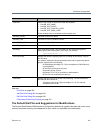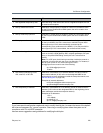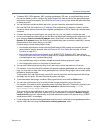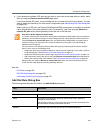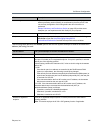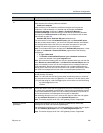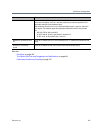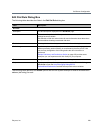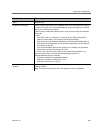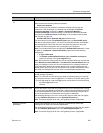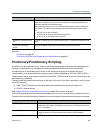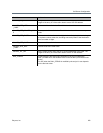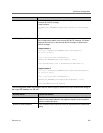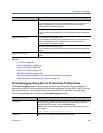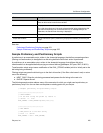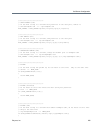
Call Server Configuration
Polycom, Inc. 249
For this action: The system attempts to resolve the address as follows:
Block Blocks the call.
Resolve to IP address Tries to treat the dial string as an IP address, and if it can, assumes it’s the address
(and port, if included) of an unregistered endpoint. If no port is specified, it uses the
default port of the signaling protocol.
If the dial string contains the characters “##,” it tries to do this using the characters
before “##.”
For SIP:
• If the domain part is an address not controlled by the RealPresence DMA
system (or supercluster), the dial string is resolved unchanged.
• If the domain part is an address controlled by the RealPresence DMA system (or
supercluster) and the user part is an IP address (and possibly “##”), the user part
is resolved to a SIP URI.
• If the characters before the first “##” resolve to an IP address, the characters
after that are treated as the user part of a URI.
For H.323, if the characters before the first “##” resolve to an IP address, the
characters after that are converted into the destinationInfo (ACF) or
destinationAddress (Setup) as follows:
• If possible, encoded as a dialedDigits address.
• Otherwise, if possible, encoded as a url-ID.
• Otherwise, encoded as an h323-ID.
Resolve to registered
endpoint
Looks for a registered endpoint (active or inactive) that has the same alias or
signaling address.
Note: This action employs the H.323<->SIP gateway function if applicable.



